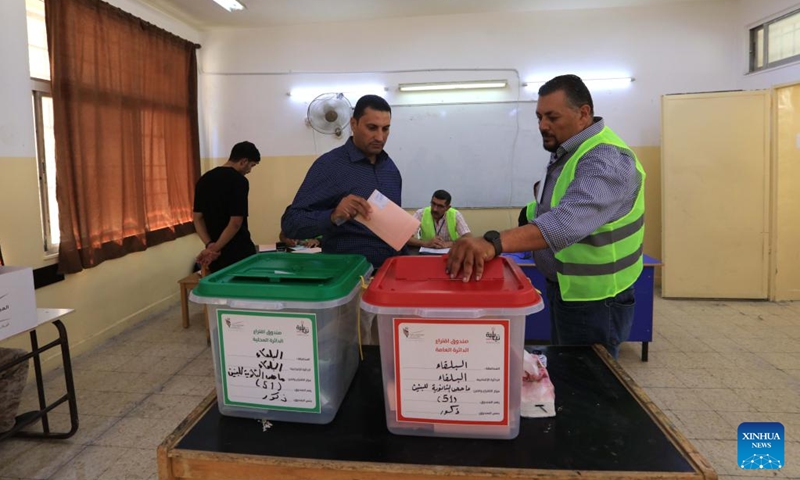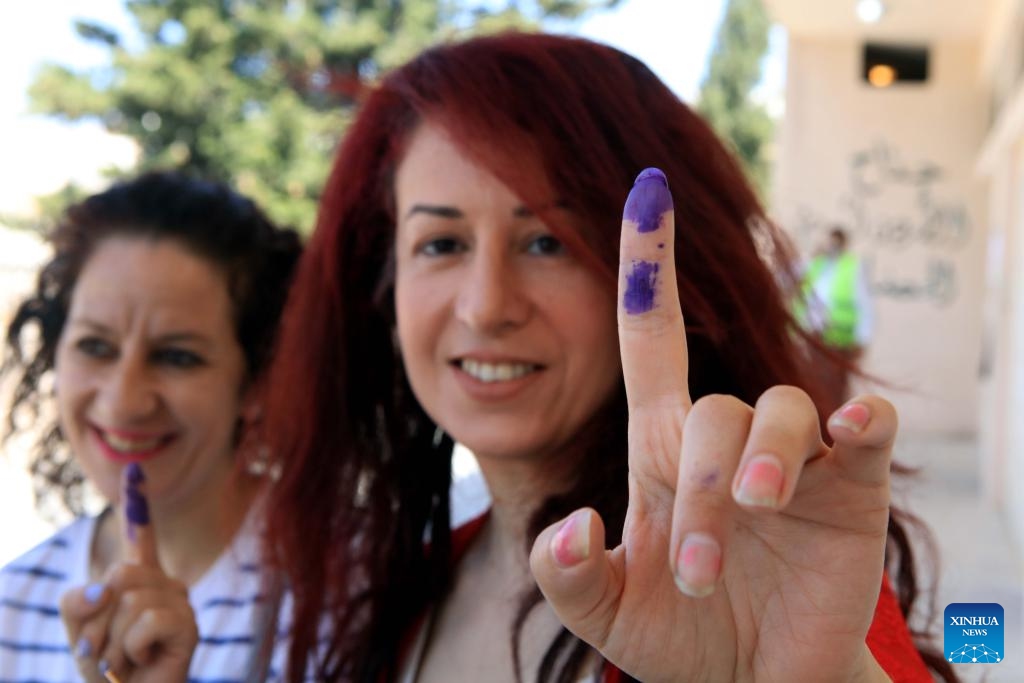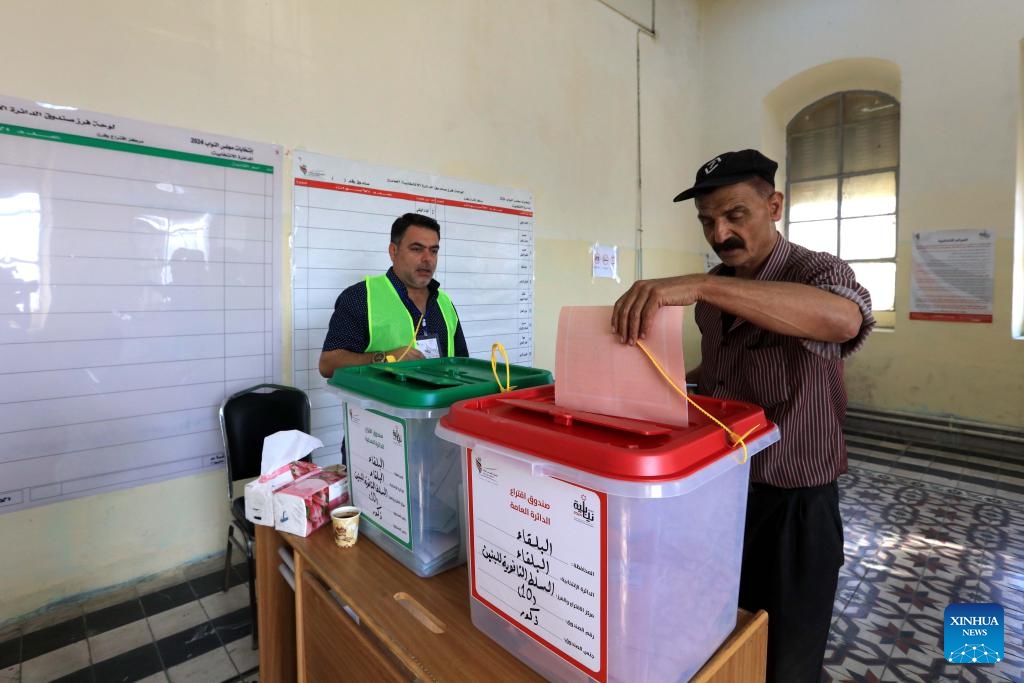
A voter casts his ballot at a polling station in Amman, Jordan, Sept. 10, 2024. Voting in Jordan's first parliamentary elections under a new electoral law designed to improve representation came to an end with a turnout of 32.1 percent, the country's Independent Election Commission said Tuesday. (Photo: Xinhua)

Voters display ink-marked fingers after voting in Balqa, Jordan, Sept. 10, 2024. Voting in Jordan's first parliamentary elections under a new electoral law designed to improve representation came to an end with a turnout of 32.1 percent, the country's Independent Election Commission said Tuesday. (Photo: Xinhua)

A voter casts his ballot at a polling station in Amman, Jordan, Sept. 10, 2024. Voting in Jordan's first parliamentary elections under a new electoral law designed to improve representation came to an end with a turnout of 32.1 percent, the country's Independent Election Commission said Tuesday. (Photo: Xinhua)
Voting in Jordan's first parliamentary elections under a new electoral law designed to improve representation came to an end with a turnout of 32.1 percent, the country's Independent Election Commission said Tuesday.
The counting process has started, said the commission in a press statement.
The turnout was 35.6 percent among male voters, and 29.1 percent among female voters, it said, noting the overall turnout surpassed that in the last elections in 2020, which was 29 percent.
There have been no delays recorded in the opening of polls nor reports of major violations in all electoral districts across the country, Mohammad Khair Al-Rawashdeh, spokesperson for the commission, told a press conference on Tuesday.
The new law, introduced in 2022, increases the number of lawmakers from 130 to 138 and includes provisions to raise the quota for the representation of women and youths.
Under the law, each political party's candidate list must include at least one woman for every three candidates and one individual under 35 among the top five positions. Additionally, the minimum age for parliamentary candidates has been lowered from 30 to 25, aiming to enhance youth participation in governance.
This year's parliamentary elections have been viewed as a critical step in Jordan's political transition, with both experts and voters hopeful for significant reform.
